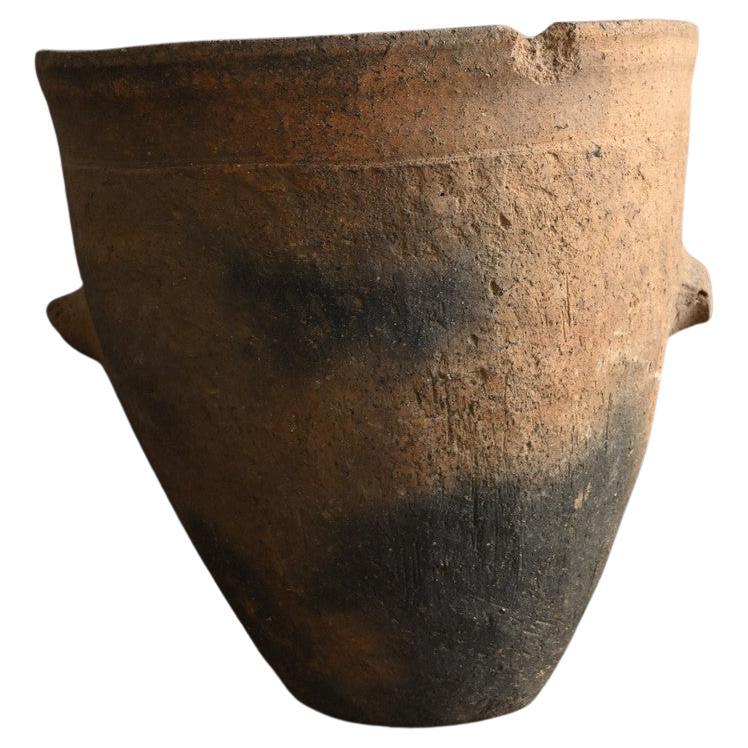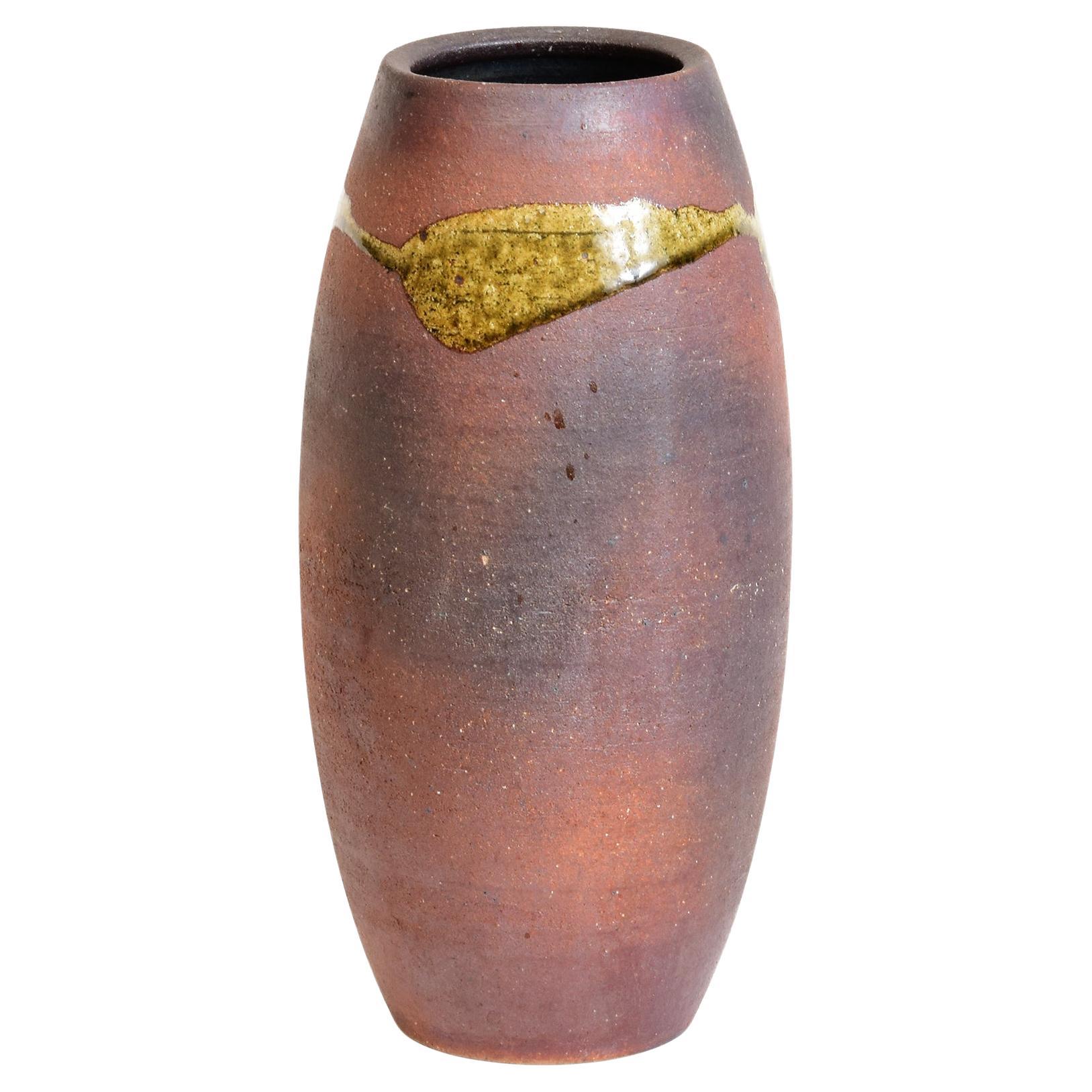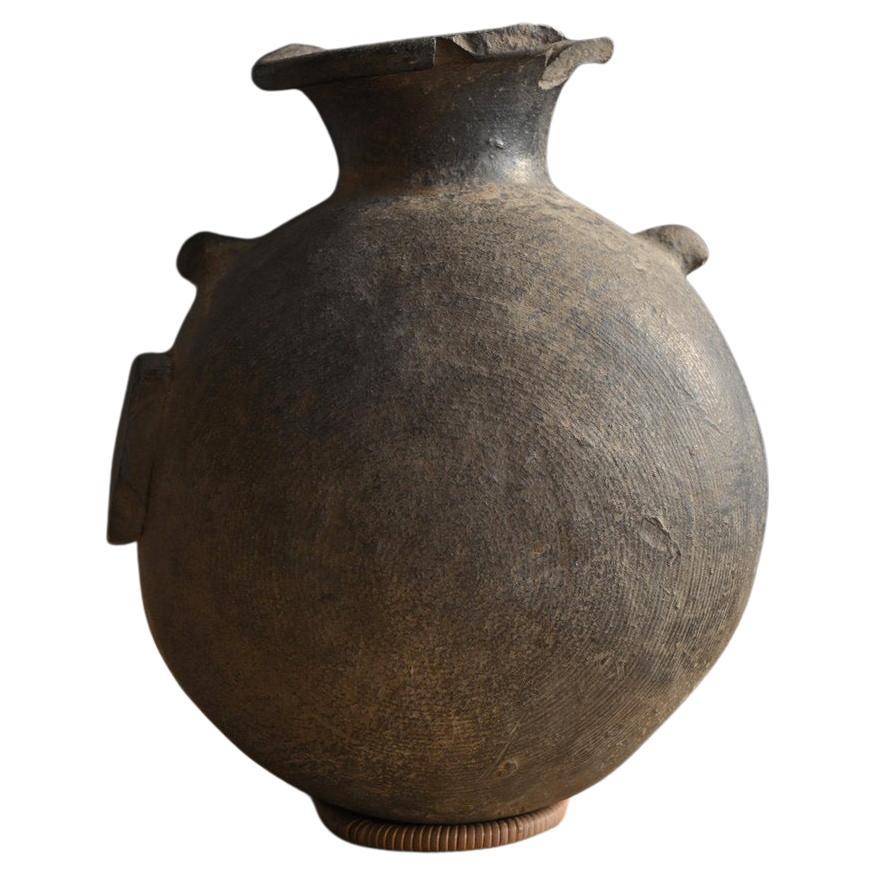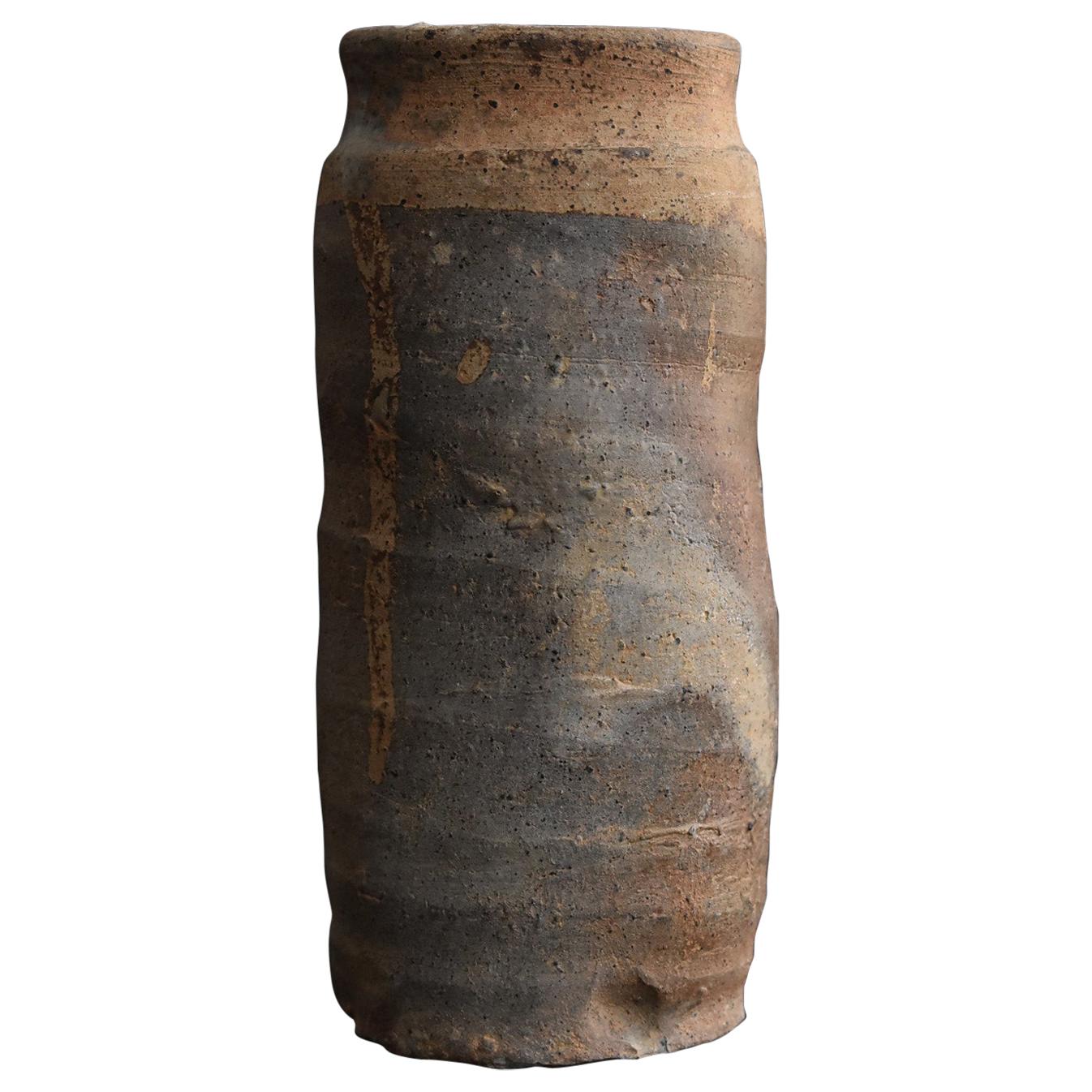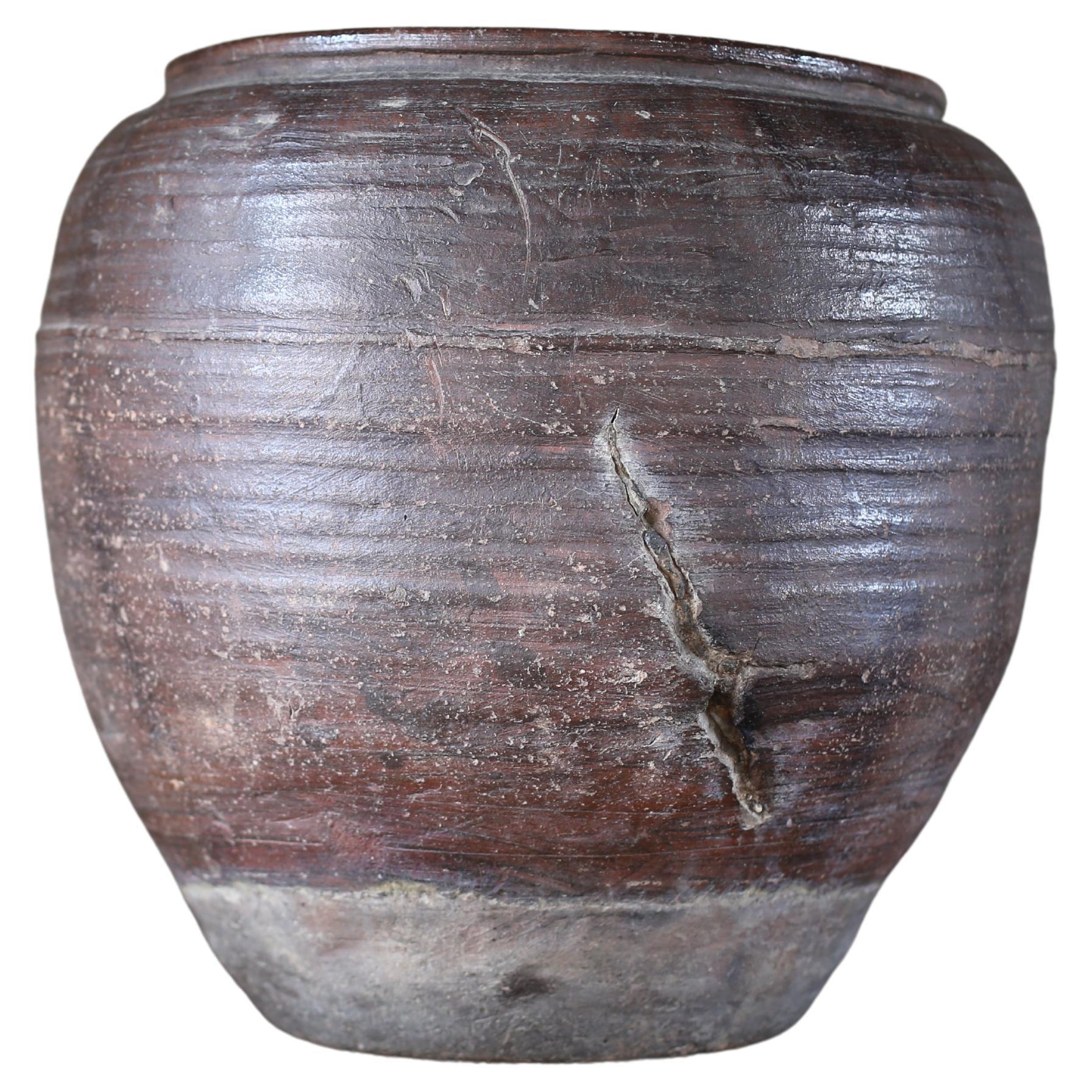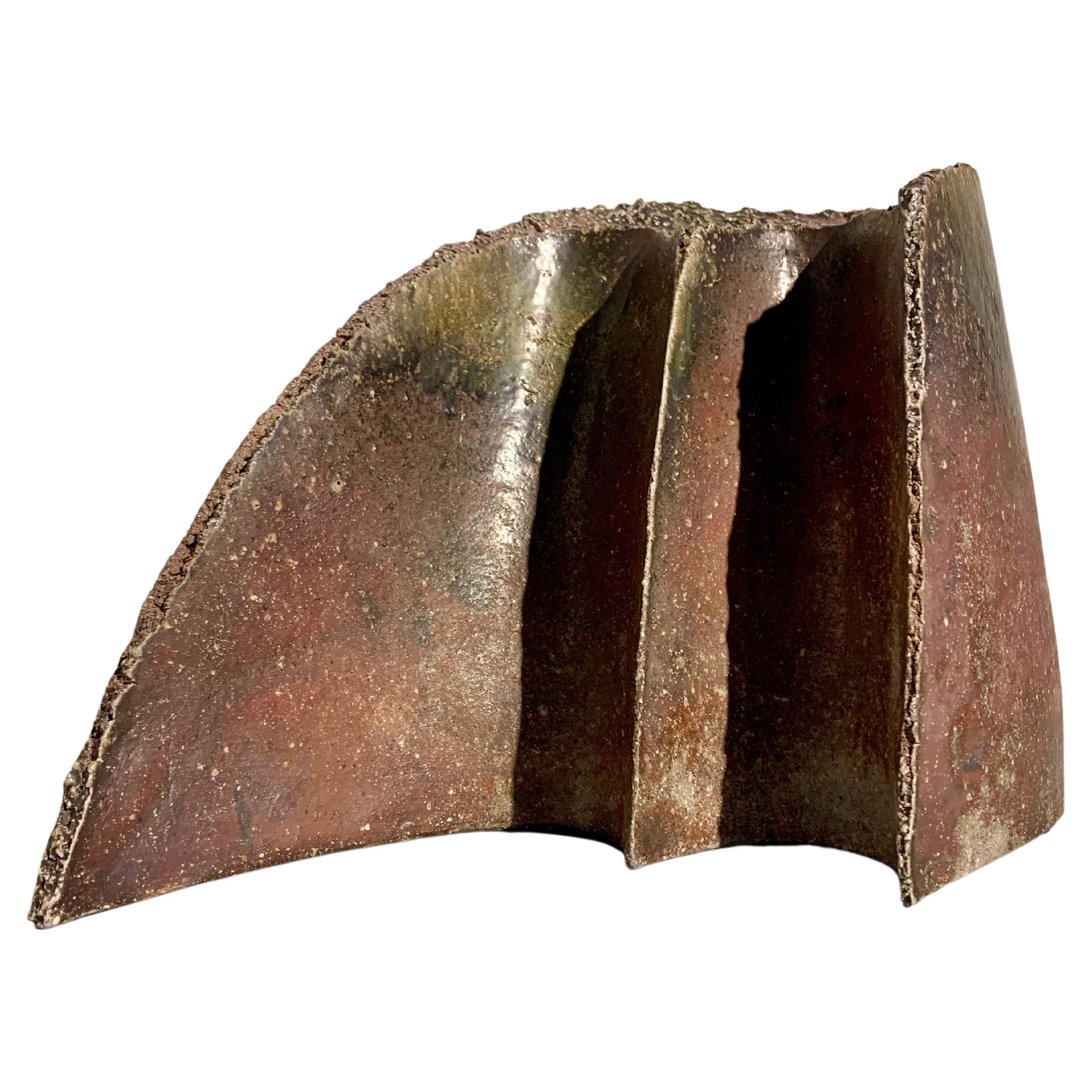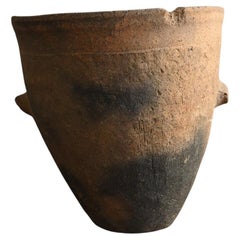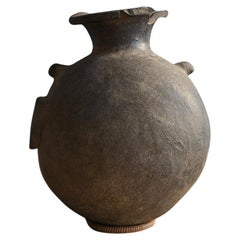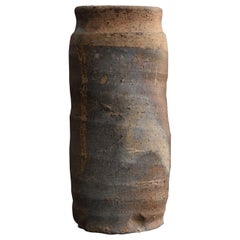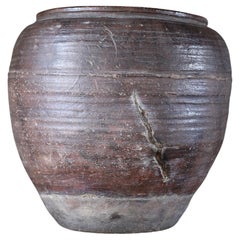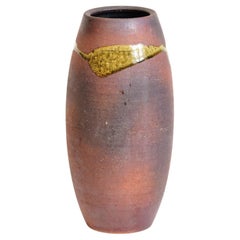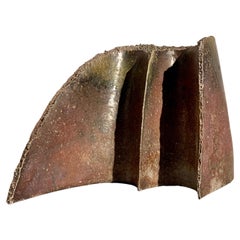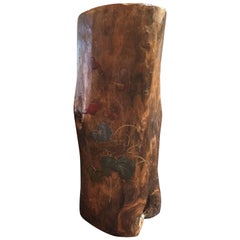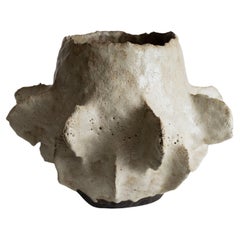Items Similar to Japanese antique pottery fragments/12th to 13th century/Flower vase
Want more images or videos?
Request additional images or videos from the seller
1 of 21
Japanese antique pottery fragments/12th to 13th century/Flower vase
$1,000
£758.78
€867.59
CA$1,396.73
A$1,552.97
CHF 810.88
MX$18,903.46
NOK 10,346.43
SEK 9,694.11
DKK 6,475.01
Shipping
Retrieving quote...The 1stDibs Promise:
Authenticity Guarantee,
Money-Back Guarantee,
24-Hour Cancellation
About the Item
Tokoname ware is a historic kiln in Japan, where pottery has been made since before the Common Era, and a kiln was established in the 5th century. This kiln is located in Aichi Prefecture, and is still one of the six major kilns in Japan, carrying on its traditions. (The red circle on the map is the Tokoname kiln.)
This item is a fragment of the edge of a large vase made in the 12th to 13th centuries, and was discovered as an excavation. (Please see the photo of the original shape of the vase.)
This vase fragment was probably unable to withstand the high temperatures during firing, or was crushed by other pottery and broken. Nevertheless, the charm of the vase fragment will never fade as historical evidence. It is a valuable item that gives a glimpse into the technology and beauty of the past.
The distinctive features are the large x and the checkered pattern stamp on the back. This x has religious significance and was carved with a spatula before firing, symbolizing the unique design of the time. The checkered stamp is a characteristic decoration of this period, giving it a sense of valuable historical elements.
Furthermore, the greatest attraction of this pot fragment is its magnificent glaze and shape. It is not glazed, but a natural glaze is used, and the ash from burning straw melts at high temperatures to create this beautiful deep green glaze. Natural glazes can become thin or peel off, but this piece has a strong glaze and a beautiful luster.
There are many collectors in Japan who love such pottery fragments, and they are highly valued.
Its abstract and interesting shape looks like modern art when placed on a black pedestal like this. Such valuable fragments are hard to come by. It is valuable as a historical document and an excellent collection. You can also enjoy it as a flower vase by decorating it with dried flowers or arranging branches inside.
If you place it in your living room or entrance, it will tighten the space and create a sophisticated atmosphere. This item, which combines history and beauty, is highly recommended.
Overall size
W40cm D17cm H30.5cm
Weight: 4.2kg
Ceramic body size
W40cm D13.5cm H26.6cm
Weight: 2.75kg
We mainly sell old Japanese items, but also items from around the world.
We have seen tens of thousands of items so far.
Using that experience, we list appealing items here.
This is something we can do because of our long experience.
If you are looking for something special, we encourage you to purchase it on our site.
About the Seller
5.0
Gold Seller
Premium sellers maintaining a 4.3+ rating and 24-hour response times
Established in 2015
1stDibs seller since 2020
1,604 sales on 1stDibs
Typical response time: 6 hours
- ShippingRetrieving quote...Shipping from: senzoku, Japan
- Return Policy
Authenticity Guarantee
In the unlikely event there’s an issue with an item’s authenticity, contact us within 1 year for a full refund. DetailsMoney-Back Guarantee
If your item is not as described, is damaged in transit, or does not arrive, contact us within 7 days for a full refund. Details24-Hour Cancellation
You have a 24-hour grace period in which to reconsider your purchase, with no questions asked.Vetted Professional Sellers
Our world-class sellers must adhere to strict standards for service and quality, maintaining the integrity of our listings.Price-Match Guarantee
If you find that a seller listed the same item for a lower price elsewhere, we’ll match it.Trusted Global Delivery
Our best-in-class carrier network provides specialized shipping options worldwide, including custom delivery.More From This Seller
View AllJapanese antique earthenware/Wabi-sabi objects/Unglazed pottery
Located in Sammu-shi, Chiba
I would like to introduce some earthenware with a very interesting shape.
This is an old excavated earthenware from Japan, called "Yayoi" or "Hajiki".
This item is from before the 9...
Category
Antique 15th Century and Earlier Japanese Other Antiquities
Materials
Pottery
Japanese Beautiful Antique Pottery/Sue Pottery/Around 9th Century/Excavated Vase
Located in Sammu-shi, Chiba
We have an aesthetic sense peculiar to Japanese people.
And we introduce the unique items that only we can do, the route of purchasing in Japan, the experience value so far, and the ...
Category
Antique 15th Century and Earlier Japanese Other Vases
Materials
Pottery
Antique Vases in Southern China / Small Vases / 16th to 17th Centuries
Located in Sammu-shi, Chiba
It is believed that pottery baked in southern China in the early Ming dynasty was imported into Japan.
It is a small size.
The upper part is slightly ...
Category
Antique 15th Century and Earlier Chinese Ming Antiquities
Materials
Pottery
Japanese Antique Pottery with Beautiful Ripped in the Edo Period/Tsubo Wabisabi
Located in Sammu-shi, Chiba
It is an old jar baked in Japan.
It seems to be in the Edo period (1700s-1800s).
The unique distorted shape is beautiful.
The color and balance of the gla...
Category
Antique Early 19th Century Japanese Edo Vases
Materials
Pottery
Korean antique pottery vase / Goryeo dynasty / 13th to 14th century
Located in Sammu-shi, Chiba
There is a long crack that has been repaired.
Detailed images 14th and 15th.
There is no water leakage, but please refrain from leaving water in it for more than two days.
Also, be s...
Category
Antique 15th Century and Earlier South Korean Other Vases
Materials
Pottery
Antique Asian wooden bucket/Early 20th century/Withered flower vase
Located in Sammu-shi, Chiba
This is an old wooden vessel, believed to have been made in Asia—likely in the Southeast Asian region. While its original use remains unclear, several holes are carved into the upper...
Category
Early 20th Century Southeast Asian Other Decorative Bowls
Materials
Wood
You May Also Like
20th Century, Japanese Pottery Vase
Located in Sampantawong, TH
Japanese pottery vase.
Age: Japan, 20th Century
Size: Height 28 C.M. / Width 13.5 C.M.
Condition: Nice condition overall.
Category
20th Century Japanese Sculptures and Carvings
Materials
Pottery
$520 Sale Price
20% Off
Kiyoharu Ichino Contemporary Japanese Tamba Pottery Vessel, circa 2000
By Kiyoharu Ichino
Located in Austin, TX
A stunning and dramatic contemporary tamba ware vessel with ash glaze by Kyoharu Ichino (b. 1957), circa 2007.
A beautiful study in form and balance, this ...
Category
Early 2000s Japanese Ceramics
Materials
Pottery
Japanese Vase
Located in Dallas, TX
Wood vase embellished with cloisonne details.
Category
Mid-20th Century Vases
Materials
Wood
$942
Contemporary Vocanic Clay V-1362 KUWABATA Series Vessel
Located in 1204, CH
At its core, my work rejects the idea of perfection. Being free of flaws and defects directly contradicts my idea of freedom of expression, and I see my work as a vehicle for communi...
Category
2010s Belgian Vases
Materials
Ceramic
Japanese Contemporary Ceramic Sculpture Kiyoharu Ichino
By Kiyoharu Ichino
Located in Atlanta, GA
"Purple Dawn", a ceramic sculpture piece by Japanese potter Kiyoharu Ichino (1957-). Purchased from Touching Stone, Santa Fe, New Mexico in 2003. Tradition meets renovation, this sculptural piece with its slab like minimal shape draws the viewer into its mysterious shape that is reminiscent of a monument. Its surface, with the typical Tanba clay fired at very high temperature and completely free of glaze, radiates a subtle metallic sheen that is nearly in a shade of purple. This piece was purchased from Touching Stone, Santa Fe, New Mexico in 2003.
Artist's bio from the gallery and the exhibition:
"Kiyoharu Ichino was born in 1957 in Tachikui into an extended family steeped in pottery-making tradition. He learned all aspects of Tanba pottery since childhood. When he was twenty, he moved to Seto to study pottery under a master of Akatsu-yaki. Upon returning to Tachikui, he launched his career with the Tanba Group Kiln. In 1983, he established his own kiln and began showing in galleries all over Japan. His works have been selected repeatedly for the prestigious juried Japan Traditional Crafts Exhibition sponsored by the Japan Crafts Association. In 1995, he was nominated to be a permanent member of The Japan Crafts Association, an honor bestowed to the most experienced and talented artists.
Traditional Tanba pottery is fired unglazed at very high temperature in large wood-fueled kilns. Ichino uses both an anagama (hole kiln) and a noborigama (climbing kiln), burning almost a thousand bundles of wood over several days to bring out the unique personalities of Tanba clay, which is renowned for its rich texture and deep purplish brown colors. Many of his pieces show silvery fire-marks like swirling mists left by the wood fire. His pieces appear to be integral parts of the clay rather than separate objects made from it. To show the unique clay texture, he often includes seemingly unfinished edges in his designs, exposing the rough clay body. Despite the high level of sophistication and innovation, Ichino's works maintain a strong connection with the ancient Tanba pottery tradition. Ichino should be no stranger to many Santa Fe residents. His work has been exhibited both in Touching Stone Gallery and as part of a major exhibition in the New Mexico Museum of International Folk Art in 2006.
About Tanba ware...
Category
Early 2000s Japanese Modern Ceramics
Materials
Ceramic
12-16th century Yamajawan 8-layered Japanese proto-pottery mountain bowls
Located in Chiba, JP
MOUNTAIN-CHAWAN – Supernatural unconscious object as the integrated 8-layered Japanese proto-pottery bowls (so-called ‘Yamajawan’ (Yama-Chawan / lit. ‘Mountain tea bowl’)) stuck to e...
Category
Antique 15th Century and Earlier Japanese Ceramics
Materials
Ceramic
More Ways To Browse
13th Century
Japanese Glazed Pottery
Antique Kilns
13th Century Furniture
Kiln Japanese
Antique Japanese Pottery
Thousand Flowers
12th Century Furniture
Black Japanese Pottery
Japanese Ash
Antique Pottery Stamps
Large Antique Fragment
Japanese Carved Flower
Antique Japanese Pot
Japanese Ceramic Pot
Japanese Green Pottery
Large Japanese Pot
Japanese Vase With Stamp
